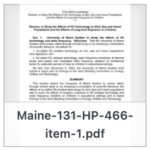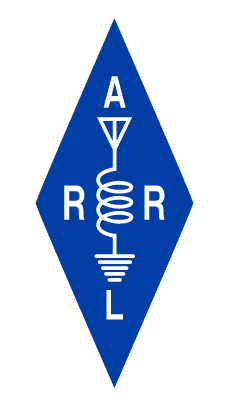 Maine ARRL Section Manager Phil Duggan, N1EP, writes:
Maine ARRL Section Manager Phil Duggan, N1EP, writes:
Maine amateur radio operators are being asked to contact their local state representative and senator and convey their concern regarding LD-697/HP-466 “Resolve, to Study the Effects of 5G Technology on Bird, Bee and Insect Populations and the Effects
of Long-term Exposure on Children.”
This bill was introduced into the Maine State Legislature with the primary goal of investigating whether 5G wireless technology could effect the bird and bee populations and have an effect upon children in an educational setting (IE routers, iPads, etc.)
However, this bill includes text similar in wording that has gone through other state legislatures and somehow entangled amateur radio up with it due to the reference of radio frequency emissions.
Please look up your state representative and senator for your district, and send them a polite, professional letter, and perhaps follow it up with an email a few days later. This is the best way we can make sure Maine amateur radio operators are not targeted for unwarranted regulation.
The sample letter [below] can be re-worded to your taste.
Thank you so much for helping to protect our hobby and service.
Look up your Rep./Sen. address: https://legislature.maine.gov/.
——
[DATE] Honorable [Your Rep. or Sen. Name] [look up your state rep or senator’s address here and insert: https://legislature.maine.gov/Dear Senator (or Representative) [your local rep name, or local senator’s name]:
I am writing to you concerning LD-697/HP 466, “Resolve, to Study the Effects of 5G Technology on Bird, Bee and Insect Populations and the Effects of Long-term Exposure on Children.”
I understand that this bill is targeting 5G technology; however, the wording in the text is very similar to other state’s efforts to regulate 5G but unintentional, or not, ended up entangling the Amateur Radio Service as well. Maine recently issued a joint state legislative resolution recognizing the valuable contributions of the state’s approximately 4,500 FCC-licensed amateur (ham) radio operators and all the contributions they routinely make to Maine’s communities and to the state as a whole.
Directing the University of Maine System to investigate the effects of “radio frequency emissions at thermal levels and pulsed and modulated radio frequency radiation at nonthermal levels for extended periods of time on children in educational settings,” as the bill states, could accidentally include amateur radio within its purview, and included in any resulting future legislation. The FCC already requires licensed amateur radio operators to conduct RF exposure surveys of their ham radio stations and antenna systems.
Please keep this in mind and if any related bills or action is taken, please ensure there is an exemption for the Amateur Radio Service.
Thank you for your consideration, and for your service to the State of Maine.
[Your Signature] [Your Full Name] [Your address] [Your phone Nr or Email]